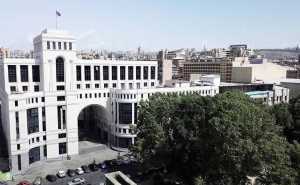
The ''Decapitated" Foreign Ministry and the Growing Challenges of Armenia's Foreign Policy
The information that all four Deputy Foreign Ministers of Armenia tendered their resignations is confirmed.

The information that all four Deputy Foreign Ministers of Armenia tendered their resignations is confirmed.
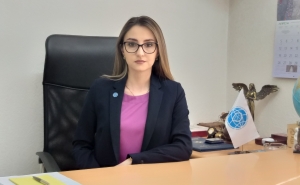
The neighboring country is eager to get this very corridor before the elections because they understand that after June 20 the situation may change fundamentally.
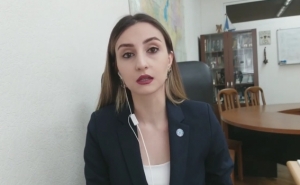
The reactivation of the Minsk Group can create new opportunities, first of all, from the point of view of including the issue of the return of prisoners of war and the status of Nagorno-Karabakh on the agenda.
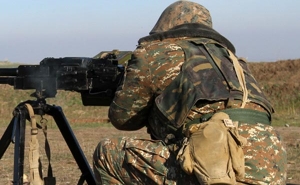
The rumors about border tensions are really alarming, especially amid the signals coming from Baku.
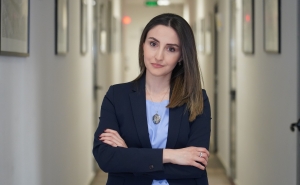
The changes that are taking place in Pashinyan's approach to Moscow today should be understood exclusively in the context of domestic political developments.
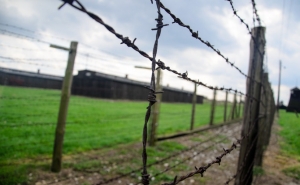
On March 22, Armenia's Prime Minister Nikol Pashinyan signed a decision on creating an interagency commission tasked with the management of the state border regime.
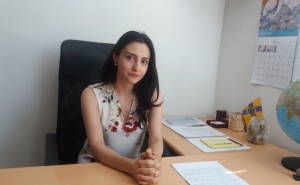
The difference in approaches and attitudes does not inspire hope that the negotiations will record significant results.
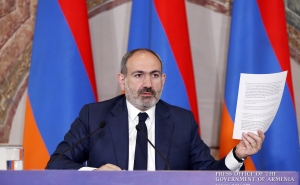
It is the St. Petersburg, Vienna, Geneva agreements, Azerbaijan was consistently seeking to remove from the talks table.
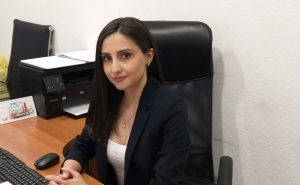
Prime minister Nikol Pashinyan, at his PACE speech also touched upon the European Council, particularly PACE’s engagement in Artsakh. He reiterated the importance of European institutions in the reinforcement of democratic institutions and the establishment of civil society in Artsakh.
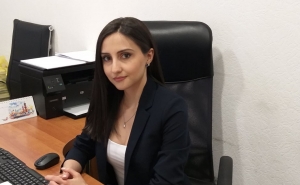
On the eve of the upcoming Pashinyan-ALiyev meeting tensions over Artsakh conflict mount.
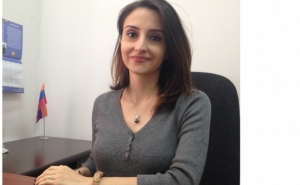
For many years, it was assumed that, regardless of contradictions and conflicts in different parts of the world, in the context of the Karabakh problem, Russian-American relations are in harmony, and this is a good example of effective cooperation, the so-called "success story".
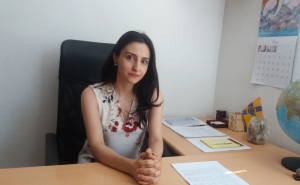
The next meeting with the co-chairs is expected as part of their regional visit before the end of the year. However, before the co-chairs arrive in Yerevan and Baku, active negotiations and discussions are held on the Karabakh issue with the participation of different level officials from the co-chair countries.
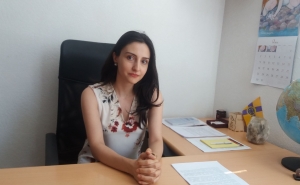
Prime Minister Pashinyan's statements and approaches were not new in nature and type, but have never been marked by such emphasis and importance before.
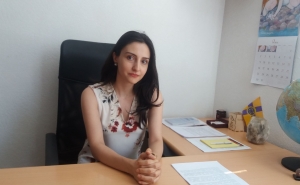
In the first case, Ankara categorically refused to release a US cleric detained for involvement with coup organizers and Kurdish militants in Turkey in 2016.
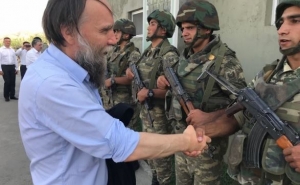
Positional changes of Azerbaijani troops in Nakhijevan, the accumulation of military equipment and armed forces on the Karabakh-Azerbaijan border and large-scale military exercises are accompanied by aggressive statements by the military-political leadership of Azerbaijan.
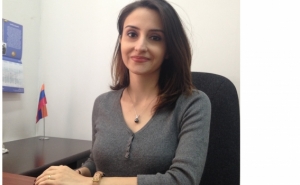
After the resignation of Prime Minister Kvirikashvili, Mamuka Bakhtadze was nominated for this post, who was the Minister of Finance in the government of former Prime Minister Georgi Kvirikashvili. The latter must submit the new government program to Parliament, and only after that he will be able to take up the post of Prime Minister.

Azerbaijan's "good will" has nothing to do here. Moreover, this is an attempt to violate the logic of negotiations and to foreclose the final status of Artsakh.
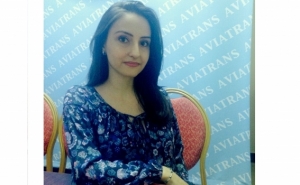
Lavrov's statement totally fits in the context of the Russian-Turkish rapprochement, and nothing more.

In fact, the content will remain the same, only the form is going to be changed. Azerbaijani people will completely lose at least de jure opportunity to participate in the governance of their country.

In case the bill is supported by the French Senate as well, most probably this will be followed by Turkey’s usual behavior – calling back the Ambassador, boycotting the French products, organizing anti-French campaign.
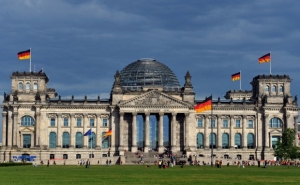
The document is very important for the international recognition of the Armenian Genocide, as it added Germany to the list of those states that have recognized the Armenian Genocide.
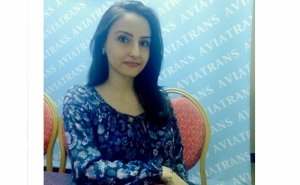
According to the Turkish side this is the "first step" needed to normalize relations. But is this what Russia was talking about? Actually, no.
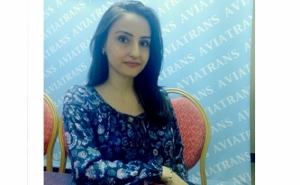
In no part of the world the ceasefire has not been preserved by video cameras and if this succeeds on Artsakh-Azerbaijan border, it will be a unique one in the whole world and may become a precedent for other conflicts as well.
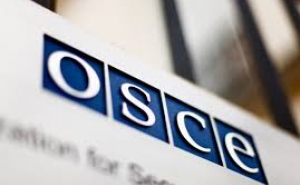
The fact that today the expansion of the mandate of the OSCE Minsk Group is one of the most important tasks is quite definite. However, in this context it is also important to understand what monitoring experience the OSCE has in other conflicts and how much they helped to maintain the truce.
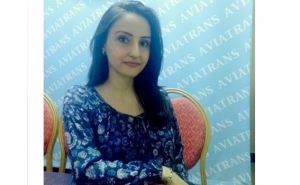
There is an impression that under the pretext of fighting against terrorism, as well as taking advantage of the tense and chaotic situation in the region, the Turkish authorities are trying to get rid of their biggest headache - the Kurds.
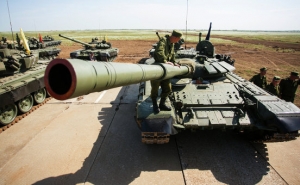
April's four-day war showed that the arms purchased by Azerbaijan are also used directly for the destruction of the civilians and civilian objects, and therefore, according to the document, states should refrain from selling weapons to Azerbaijan
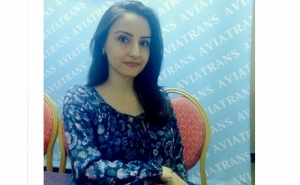
It would be naive to think that Azerbaijan does not know or does not realize it, but the indulgence of the international community is a green light for Azerbaijan, which can easily disrupt the legal system carefully designed by the same international community.

The EU did its best not to allow such development of the process and gave the UK an opportunity not to take part in the further integration of the EU and not to help the EU in migration crisis. But isn't this yet another superficial solution, the only purpose of which is to conceal the problems from the surface?
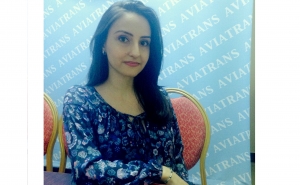
Perhaps the best solution to the problem can be the foundation of legal consulting center which will assist to legally defend the right of property on the one hand of the Armenians who left or intend to leave Syria, on the other hand will coordinate the preparation of group requests and the process to ensure the protection of the Syrian Armenians’ rights.
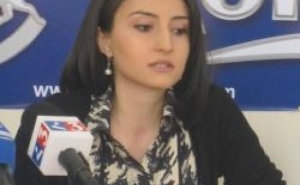
How can the Co-Chairs speak about a meeting of the Presidents of two countries and introduce it as a constructive step, when one of the sides continues its destructive policy? After the relative calm during the European Games in Baku, now the situation on the borders is quite tense.

Artsakh Republic has developed independent and democratic institution and a third country, be it Azerbaijan or Armenia, from outside cannot have a full picture of the ongoing processes in that country. The fact that such prestigious analytical institution invited the first person of the Artsakh Republic to talk about the domestic and foreign policy of Artsakh, speaks of this realization.

However, as a response to all these, NKR consistently develops, several times exceeding Azerbaijan in regard with democracy and the protection of human rights. In Azerbaijan the aforementioned rights and freedoms does not have any value, here an individual and his/her dignity are subject to the personal interests of the ruling regime.
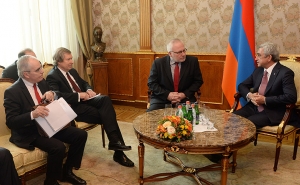
- The co-chairs’ visit to region ended. How will you evaluate the effectiveness of the meetings? - The co-chairs’ visit to the region started in Azerbaijan on February 16, after which they had meetings in Yerevan, and then left for Stepanakert. The US co-chair James Warlick nn the first day of his visit to region mentioned that “serious talks are expected with the President of Azerbaijan and...

After all, a state will have to pay salary to those soldiers and rely on them for one of the most important functions of the state – self-defense of the country. Perhaps this is the reason why in the past many specialists perceived the involvement of foreigners in the army as a sign of a state’s imminent decline or at least as a sign of its weakness.
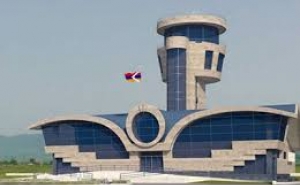
As for the Azerbaijani threats, I should mention that this kind of behavior was not a surprise either for the international community, or for us. To wait from Azerbaijan that it will have a constructive approach towards any question concerning NKR means to be at least unaware of the policies adopted by Azerbaijan
 17:08
17:08 15:05
15:05 11:11
11:11 10:43
10:43 09:16
09:16 19:55
19:55 18:30
18:30 18:20
18:20 17:01
17:01 16:45
16:45 16:01
16:01 15:59
15:59 15:43
15:43 15:06
15:06 14:47
14:47 14:44
14:44 14:20
14:20 12:57
12:57 11:40
11:40 10:16
10:16day
week
month